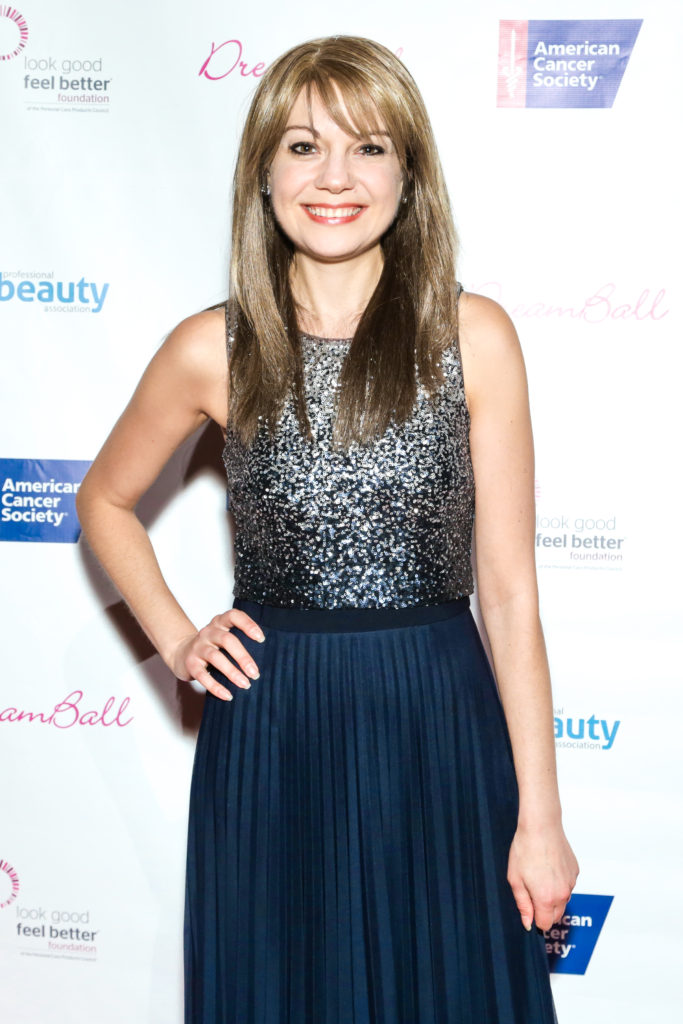Surviving Cancer (Three Times!): How I didn’t Let My Disease Define Me
By Jessica Melore
When I was a 16-year-old high school senior, I was faced with the unusual decision about how public I would be about sharing my story. No, I hadn’t released a break-out rock album – I’d just barely lived through a massive heart attack, and my heart was running on an experimental pump. My left leg was amputated above the knee and I needed a heart transplant to survive long term. My family was fielding calls from reporters, and some people suggested I keep a low profile for the sake of my privacy, and presumably any insecurity about my condition.

Jessica Melore at the 2017 DreamBall in NYC
But I saw no reason to hide. I had survived, and I needed to show people that I was still the same person. After coming so close to losing my life, I didn’t want to miss out on anything.
In time, I discovered that being open about my story could actually help people. I could show them that young women can have heart disease and need to be taken seriously, that thousands of others like me need a transplant because not enough people registered to be organ donors, and that I could still dance on top of a desk in my school musical on a prosthetic leg.
I felt differently the first time I had cancer (non-Hodgkin’s lymphoma). I was a sophomore at Princeton, and though the campus newspaper had interviewed me about my leg amputation and heart transplant the year before, I told very few classmates about the cancer. At the time, cancer seemed more like an unpredictable threat. I didn’t want to raise any alarms or sympathy. When I was finally in the “safe zone” of remission, I started talking about it in my speeches, and became a vocal advocate in the cancer community.
And yet, when I got cancer a second time, in my mid-20s, I still didn’t feel comfortable enough to speak openly about it while I was going through it. It felt so strange to give motivational speeches about surviving cancer the first time – without mentioning the chemo treatment I’d scheduled the next day. Discussing it felt like casting a dark cloud of uncertainty over what was supposed to be an inspiring story.
Times are different now. No one likes to hear the word “cancer,” but I notice people talk about it more freely. I’ve seen many beautiful bald heads on social media and in public. So at age 33, when I found out I had endometrial cancer, I decided I would show others the journey. I had one caveat: people were allowed to cheer me on, but no one was allowed to say, “I’m sorry.”
To show that losing your hair doesn’t have to be scary, I shared videos of myself on social media shaving my head and celebrated the end of every chemo session.
On the same day I lost my hair, I was also fitted for a wig, and attended my first Look Good Feel Better session. As someone who had been doing the same makeup routine since college, it was great to learn some new tips from an expert makeup artist. The thought of losing my eyebrows and eyelashes wasn’t as daunting when he taught us ways to “imitate” them. I met women in all different stages of treatment, and it was a great bonding experience. We were all glowing when we left that day, and it wasn’t just the bronzer.
A few weeks later, I was invited to walk in a fashion show during Lord & Taylor’s Charity Day benefitting Look Good Feel Better at the flagship store in New York City. Even though I wasn’t afraid to share photos rocking my bald head on social media the day before, walking down that runway in a beautiful navy sequined dress, my wig, and my professional makeup made me feel like a million bucks. I recently relived that feeling at the 2017 DreamBall, this time celebrating as a survivor with the Look Good Feel Better family.
Everyone handles cancer differently. There were days I went without my wig, and other days I liked the anonymity of wearing one. Some of us bare our bald heads with makeup, some without. Some of us change up our wigs and head covers to keep people guessing – I was known to wear hot pink wigs and Santa hats to chemo treatment on occasion. What is most important is what makes you feel good about yourself.
Look Good Feel Better gives women that option. It made me feel like my old self again. It reminded me that treatment wasn’t forever, and that cancer would never define me.
Jessica Melore is an award-winning speaker, writer, and patient advocate. She has been featured on Dateline, Good Morning America, MTV, ABC World News Tonight, Extra, and Telemundo, among others. For more information, visit www.jessicamelore.com. Follow her on Instagram and Twitter @jessicamelore and on Facebook at facebook.com/jessicamelorespeaker.
 Alliance Portal
Alliance Portal